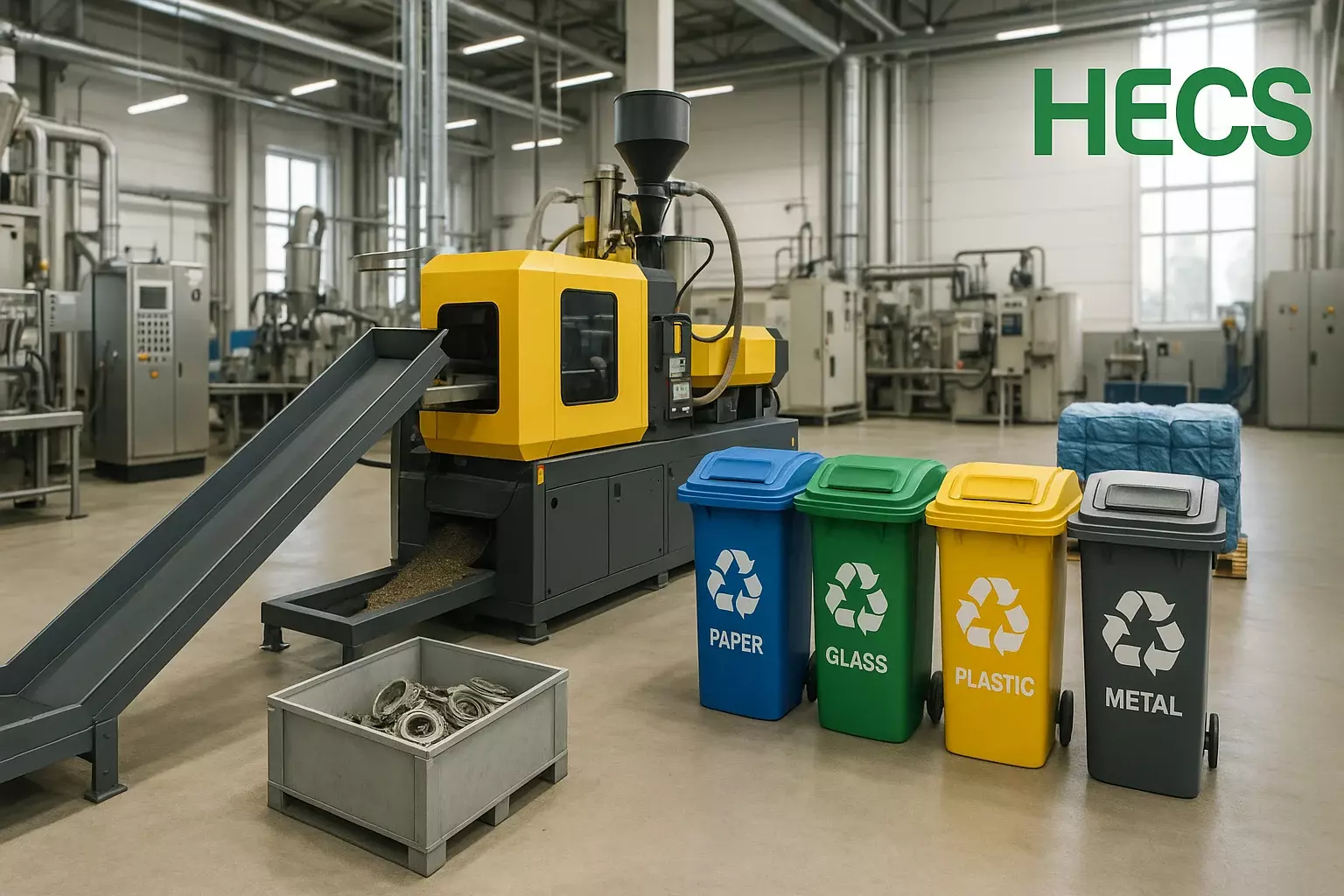
Circular Economy in Indian Industries: From Waste to Wealth

Circular Economy in Indian Industries
India's industrial landscape is undergoing a profound transformation. As resource scarcity intensifies and environmental regulations grow stricter, manufacturers are realising that yesterday's waste can become tomorrow’s wealth. The circular economy in Indian industries marks a major shift from the old "take-make-dispose" model to one focused on "reduce-reuse-recycle." It’s more than just an environmental trend—it’s becoming a strategic business move. With policies like the National Resource Efficiency Policy, rising ESG demands, and escalating raw material costs, companies are rethinking how they produce and consume resources. Circular economy in Indian industries is fast becoming a practical solution—cutting costs, reducing waste, and opening up new revenue streams.
Why are Indian companies making this change?
Three big reasons:
Government rules are getting stricter
Raw materials cost more each year
Customers want eco-friendly products
The good news? Companies that switch early are saving money and winning more business.
The Four Building Blocks of the Circular Economy
Think of the circular economy like building a house. You need four strong pillars to make it work.
Stop Waste Before It Starts: The best waste is the waste you never create. Smart factories redesign their processes to use less material and create less waste. It's cheaper to prevent waste than to deal with it later.
Turn Waste Into Resources: What looks like trash to one company can be treasure to another. Modern recycling technology helps companies turn their waste into useful materials again.
Work Together With Partners: No company works alone. When suppliers, manufacturers, and customers work together, they can create systems where everyone's waste becomes someone else's raw material.
Make Products That Last Longer: Design products that can be repaired, upgraded, and recycled easily. This keeps materials useful for years instead of months.
Success Stories: How Indian Companies Are Winning
Tata Steel: Turning Steel Waste Into Building Materials
Tata Steel found a clever solution to its waste problem. When they make steel, they create a byproduct called slag. Instead of throwing it away, they sell it to cement companies.
This simple change brought big results:
Less waste is going to landfills
New income from selling slag
Cement companies get cheaper raw materials
Everyone wins
Their factory byproducts now go into roads, buildings, and construction projects across India.
ITC: From Farm Waste to Packaging
ITC had two problems: they needed packaging materials, and farmers had leftover crop waste. Their solution was brilliant—turn farm waste into packaging.
Here's how it works:
Farmers sell their crop leftovers to ITC
ITC turns this waste into paperboard
The paperboard becomes packaging for their products
Used packaging gets recycled back into new materials
This closed-loop system helps farmers earn extra money while giving ITC sustainable packaging.
Mahindra Group: Recycling Old Cars Into New Ones
When cars reach the end of their life, Mahindra doesn't see junk—they see opportunity. Their car recycling program takes old vehicles apart and uses the materials in new cars.
They also save water by cleaning and reusing it in their factories. Some of their plants are so efficient they're certified as "green factories."
JSW Cement: Using Other Industries' Waste
JSW Cement gets creative with its raw materials. Instead of using only fresh limestone, they use waste from power plants and steel mills.
Fly ash from power plants and slag from steel mills work perfectly in cement. This helps JSW save money on raw materials while helping other industries dispose of their waste safely.
Why the Circular Economy Makes Business Sense
Save Money Every Month:
Using fewer raw materials and creating less waste cuts costs immediately. Many companies see savings within the first year.
Stay Ahead of Rules:
Environmental rules are getting tougher. Companies with circular systems already meet future requirements.
Attract Better Customers:
Today's customers prefer companies that care about the environment. Going circular helps you win more business.
Get Better Loans and Investments:
Banks and investors now favour companies with strong environmental practices. Good ESG scores mean better financing terms.
Common Problems and Smart Solutions
Challenge: Expensive Technology.
Many companies worry about the cost of new recycling equipment.
Solution: Start small.
Pick one waste stream and prove the concept works. Success with one project makes it easier to expand.
Challenge: Getting Everyone On Board
Some employees resist change, especially in traditional industries.
Solution: Show real examples and quick wins. When people see colleagues benefiting from circular practices, they get excited to join.
Challenge: Finding the Right Partners. Creating circular systems often requires working with other companies.
Solution: Work with experts who know the market and can connect you with the right partners.
Partner with HECS to Turn Industrial Waste into Opportunity
HECS helps Indian companies turn waste into wealth. We don't just give advice—we work with you to make it happen.
What We Do:
Check your current waste streams and find opportunities
Design systems that turn your waste into money
Help you meet all environmental rules
Connect you with buyers for your recyclable materials
Train your team to keep the system running smoothly
Our Track Record: We've helped dozens of Indian manufacturers save money, reduce waste, and meet environmental goals. Our clients typically see results within 6-12 months.
Industries We Serve:
Steel and metals
Chemicals and petrochemicals
Textiles and garments
Food processing
Automotive
Paper and packaging
Start Your Circular Journey Today
The circular economy isn't just about helping the environment—it's about helping your business grow. Companies that start now will have advantages over competitors who wait.
Every day you delay is money left on the table. Your waste streams are asset streams waiting to be unlocked.
Ready to turn your waste into wealth?
Contact HECS today for a free consultation. We'll show you exactly how much money your current waste could be generating and create a plan to make it happen.
Call us now and discover what your waste is really worth.
Share this post:





